- Home
- Paul Christopher
The Aztec Heresy
The Aztec Heresy Read online
Table of Contents
Title Page
Copyright Page
Dedication
THE PAST
Chapter 1
Chapter 2
THE PRESENT
Chapter 3
Chapter 4
Chapter 5
Chapter 6
Chapter 7
Chapter 8
Chapter 9
Chapter 10
Chapter 11
Chapter 12
Chapter 13
Chapter 14
Chapter 15
Chapter 16
Chapter 17
Chapter 18
Chapter 19
Chapter 20
Chapter 21
Chapter 22
Chapter 23
Chapter 24
Chapter 25
Chapter 26
Chapter 27
Chapter 28
THE NEXT MOVE
The young man in the white shirt panned around the plaza a second time . . . and put the camera down on the table in front of him. He took a cell phone out of the pocket of his shirt. He dialed the international telephone code. . . .
‘‘Yes?’’ The language was Italian, the tone careful and considered. A voice with power behind it.
‘‘I have them,’’ the young man in the plaza answered. ‘‘Our contact in the archives said they have been looking for references that include information about the Codex. . . . What shall I do?’’
‘‘Nothing. Keep them under surveillance for the time being.’’
‘‘Yes, Your Eminence.’’
‘‘The opening moves have begun,’’ said the voice. ‘‘If they become too curious, remove them from the board. Keep me advised.’’
Remove them from the board, thought the young man. In other words, kill them.
The cell phone went dead in the young man’s ear.
ALSO BY PAUL CHRISTOPHER
Michelangelo’s Notebook
The Lucifer Gospel
Rembrandt’s Ghost
SIGNET
Published by New American Library, a division of
Penguin Group (USA) Inc., 375 Hudson Street,
New York, New York 10014, USA
Penguin Group (Canada), 90 Eglinton Avenue East, Suite 700, Toronto,
Ontario M4P 2Y3, Canada (a division of Pearson Penguin Canada Inc.)
Penguin Books Ltd., 80 Strand, London WC2R 0RL, England
Penguin Ireland, 25 St. Stephen’s Green, Dublin 2,
Ireland (a division of Penguin Books Ltd.)
Penguin Group (Australia), 250 Camberwell Road, Camberwell, Victoria 3124,
Australia (a division of Pearson Australia Group Pty. Ltd.)
Penguin Books India Pvt. Ltd., 11 Community Centre, Panchsheel Park,
New Delhi - 110 017, India
Penguin Group (NZ), 67 Apollo Drive, Rosedale, North Shore 0632,
New Zealand (a division of Pearson New Zealand Ltd.)
Penguin Books (South Africa) (Pty.) Ltd., 24 Sturdee Avenue,
Rosebank, Johannesburg 2196, South Africa
Penguin Books Ltd., Registered Offices:
80 Strand, London WC2R 0RL, England
Published by Signet, an imprint of New American Library,
a division of Penguin Group (USA) Inc.
First Printing, July 2008
Copyright © Paul Christopher, 2008
All rights reserved
REGISTERED TRADEMARK—MARCA REGISTRADA
Without limiting the rights under copyright reserved above, no part of this publication may be reproduced, stored in or introduced into a retrieval system, or transmitted, in any form, or by any means (electronic, mechanical, photocopying, recording, or otherwise), without the prior written permission of both the copyright owner and the above publisher of this book.
PUBLISHER’S NOTE
This is a work of fiction. Names, characters, places, and incidents either are the product of the author’s imagination or are used fictitiously, and any resemblance to actual persons, living or dead, business establishments, events, or locales is entirely coincidental.
The publisher does not have any control over and does not assume any responsibility for author or third-party Web sites or their content.
The scanning, uploading, and distribution of this book via the Internet or via any other means without the permission of the publisher is illegal and punishable by law. Please purchase only authorized electronic editions, and do not participate in or encourage electronic piracy of copyrighted materials. Your support of the author’s rights is appreciated.
http://us.penguingroup.com
To Geoff and Deryldene Tucker,
Good Friends from the Rock,
Last of the Old Breed
THE PAST
1
Sunday, the fifteenth of July, A.D. 1521
Cayo Hueso, Florida
Friar Bartolome de las Casas of the Ordo fratrum Praedicatorum, the Order of St. Dominic, heard the giant wave before he saw it. The surging breaker came out of the storm-wracked darkness like a howling beast, a savage, climbing monster that suddenly appeared behind the treasure-laden galleon Nuestra Señora de las Angustias. The wave’s belly was as black as the night around it, the huge, driving shoulders a livid sickly green, its ragged, curling head white and torn with ghostly tendrils of wind-whipped spume and spindrift.
It rose like a toppling wall above the stern of the groaning ship, pushing the galleon ahead of it like a chip of wood in a rain-swollen gutter. The seething wave rose until it could rise no more, filling the dark sky above the terrified monk, then reaching down for the ship like some malevolent screaming demon of the seas. Seeing it, Friar Bartolome knew without a doubt that his life was about to end.
He waited for death helplessly crouched in the waist of the vessel with the other few passengers who had come aboard in Havana, including the boy, Don Antonio Velázquez, the governor’s son, who was on his way home to Spain for the education appropriate to a young man of the nobility. Some of the crew were desperately trying to unship the Nuestra Señora’s small boats from the skid rails over the main hatch cover while the rest of the men huddled by the fo’c’sle deck. No one stayed below in such desperate weather; better to see fate approaching, no matter how terrible, than to seal yourself blindly within a leaking, unlit coffin.
Above them the rain came down in torrents and the remains of the fore staysail and the foresail hammered in the terrible wind, the lines and rigging beating like hailstones on the drum-heads of torn, ruined canvas. The rest of the sails had been ragged to tatters and the jib-boom was gone entirely and the bowsprit splintered away.
There had to be a hole somewhere deep within the hull because the Nuestra Señora was moving more and more sluggishly with every passing moment and taking water in the stern. The sea anchor was gone, forcing them to run before the wind, any remnant of control long since vanished. The mainmast groaned and creaked, the hull moaned, and the seas pounded mercilessly at the schooner’s flanks. Everyone knew the ship wouldn’t last the hour, let alone survive the night.
Turning his head in time to see the deadly, bludgeoning wave, Friar Bartolome had a single heartbeat to take some measure to save himself and his precious cargo. With barely a conscious thought he dropped to the sodden deck and wrapped his arms tightly around the anchor chain that lay between the capstan and the bitt, holding on for dear life as the breaking monster pummeled him.
The wave struck with a thundering roar, and an even more terrible sound emerged from within the belly of the ship: a deep, grating screech as the keel scraped along a hidden line of reef and then stuck fast, hard aground, wedged between two invisible clutching jaws of coral. The Nuestra Señora sto
pped dead in the water. There was an immense cracking sound and the mainmast toppled, carrying the yards and spars along with it into the raging sea.
The wave, unhindered, swept along the deck of the schooner, swallowing the cowering crew, demolishing the ship’s boats and burying Friar Bartolome beneath tons of suffocating water. The wave surged on, the suction pulling at his straining arms and heavy cassock, but he managed to keep his grip long enough for the great green wall to pass. He came up for air and saw in an instant that he was the only one left alive on the deck. Everyone else was gone except the boy, Don Antonio, who now lay broken like a child’s doll, tangled in the pins and rigging of the foremast fife rail. His head was crushed, and gray matter oozed wetly from beneath his cap, his eyes wide and staring toward the dark heavens, seeing nothing. There would be no school in Spain after all.
Friar Bartolome looked back toward the stern but saw only the dark. Struggling to his knees, he began tearing at his black cassock, realizing that if he was thrown into the water the drenched fabric would doom him, dragging him down to the bottom. He managed to relieve himself of the heavy robe, and then the next wave struck with no warning at all.
Without the anchor chain to hold him the monk was immediately swept up, turned head over heels and thrown toward the snarled rigging at the bow, striking his head on the rail and feeling a piercing tear at his throat as a splinter of wood slashed into him. Then he was overboard, pushed down so deeply within the wave that he felt the rough touch of the coral bottom as it smashed into his shoulders and back. Crushed by the huge weight of water, he felt the remains of his clothing being torn away and he tumbled helplessly within the wave across the seabed. He forced himself to hold his breath and pushed toward the surface, his arms windmilling underwater, his face upturned.
Finally he broke free of the wave’s terrible grip and gulped in huge gasping lungfuls of air, retching seawater, then felt the tug of the next wave as he was swept forward and down again with barely enough time to take a breath before the deluge swallowed him. Once more he was pressed down to the bottom, the rough sand and coral tearing at his skin, and once more, exhausted, he clawed his way to the surface for another retching breath.
A fourth wave took him, but this time instead of coral there was only sand on the sloping bottom, and he barely had to swim at all before he reached the surface. His feet stumbled and he threw himself forward with the last of his strength, staggering as the sea sucked back from the shore in a rushing rip current strong enough to bring him to his knees. He crawled, rose to his feet again and plunged on, knees buckling, in despair because he knew in some distant corner of his mind that another wave as strong as the first could still steal his life away with salvation and survival so tantalizingly near.
He staggered again in the treacherous sand that dragged at his heels and almost toppled over. He took another step and then another, blinking in the slanting, blinding rain. Ahead, farther up the broad strip of shining beach, was a darker line of trees, fan palms and coconuts, their trunks bent away from the howling wind and the lashing rain. Unripe fruit tore away and crashed into the forest like cannonballs. His breath came in ragged gasps and his legs were like deadweights, but at least he was free of the mad, clutching surf that broke behind him now like crashing thunder.
He struggled higher up the sandy slope and finally reached a point above the wrack and turned back to the sea. He sank down exhausted to his knees, naked except for the ragged remnants of his linen stockings and his undershift. He was still badly frightened, but he wept with relief as he stared into the shrieking night. By the grace of God and by the continuing miracles of the most secret and terrible Hounds of God, he had survived.
Through the rain he could see the heaving broken line of frothing white that marked the reef the ship had run aground on, but nothing more. Somewhere out there, invisible in the darkness, the Nuestra Señora de las Angustias was dying, breaking apart on the teeth of the coral shore, her crew and captain gone to their fates, leaving Friar Bartolome alone in this terrible place. Remembering suddenly, he fumbled under his remaining clothing and felt for the oilskin-wrapped parcel and its precious contents, which had been strapped securely around his waist. He screamed in frustration against the howling wind. The Codex and the last and greatest secret left by the fiendish heretic and enemy of God, Hernán Cortéz, Marqués del Valle de Oaxaca, was gone.
2
Monday, December 24, 1962
MacDill Air Force Base, Tampa, Florida
Sometimes, like the massive explosion of a hydrogen bomb, two small events, innocuous on their own, can combine to create a terrible result. In this case the two events were a pre-Christmas party at the base, resulting in Major Buck Tynan’s pounding hangover, and a corroded turbine pin valve in the port-side outer engine nacelle of the B-47 strategic bomber known as Mother’s Goose.
It was Tynan’s job as aircraft commander and pilot to ‘‘box the square,’’ flying the Goose in a set pattern from MacDill west to a map coordinate off the Yucatán Peninsula, then southeast to another coordinate off Kingston, Jamaica, a jog east to the Turks and Caicos Island, just barely hitting Cuban airspace at Guantánamo. From the Turks and Caicos he’d then guide Mother’s Goose back to her nest at MacDill just in time for breakfast. Two eggs, poached, with bacon and home fries.
The whole flight took roughly five hours and at no time was the sleek swept-wing bomber ever more than ninety minutes from its main target in the event of war: Havana. Tynan and a dozen other B-47 crews had been flying the same picket patterns twenty-four hours a day, seven days a week, since the crisis in October, when Kennedy and Khrushchev went nose to nose over the Russian missiles. Between the B-47s at MacDill and the U-2s out of Edwards in California, they had Castro covered.
From the outside Mother’s Goose was a perfectly streamlined aerodynamic beauty. From the inside she was as cramped as the inside of a washing machine; certainly no one had thought about the crew when the bird was being designed. The whole cockpit was slightly offset to the right with an eighteen-inch-wide passage along the left. According to people he trusted, the aircraft had been put together over a weekend in a hotel room in Glendale, California, and the original design had been carved out of a chunk of balsa wood from a local hobby shop.
The seating was in tandem, the navigator-bombardier crammed into the nose, the copilot above and behind him, and the pilot behind him, with only the pilot and the copilot under the heavy plastic canopy. In the event of an emergency the navigator ejected downward, which was fine if the aircraft had enough altitude, while the pilot and the copilot ejected upward.
There were no toilet facilities, so the men used makeshift urinals. Coffee in a thermos and wax-paper-wrapped sandwiches were the order of the day as far as food went. The ordnance consisted of two automatically operated cannon in the tail; not much use against Fidel’s surface-to-air-missile batteries or anything else you were likely to meet at thirty-nine-thousand feet.
The bomb load was something else again: two twelve-foot, six-inch B-43 MOD-1 thermonuclear devices, each with a one-megaton yield. One of the bombs would turn Havana into a crater. Two would turn the top end of Cuba into a sheet of molten glass. Tynan rarely thought about that sort of thing; his job was to fly the pattern, then go for breakfast. Taking off that night, he was thinking about the party and his splitting headache. The last thing he wanted to do was fly.
For the first hour out of MacDill everything was as usual. Dick Baumann, the navigator, was singing an endless round of ‘‘Duke of Earl’’ while he kept one eye on the compass and the other on his charts. Wally Meng, the copilot, was actually flying the Goose, and Tynan was dozing, waiting to take over once they’d made the first leg. Outside was pitch darkness. It was two o’clock in the morning and the joint was definitely not jumping. The only sounds other than Baumann’s dubious version of ‘‘Duke of Earl’’ was the monotonous droning roar of the six J-47 engines and the whisper of air passing over the canopy at four hundred a
nd fifty miles an hour. Tynan sighed behind the thick rubber of his mask. He might as well have been on a bus.
The first dark cloud on the horizon was just that—a dark cloud on the horizon. Baumann caught it first on his pint-sized radar screen.
‘‘Major, we got us a storm system dead ahead,’’ said the navigator, his Tennessee drawl crackling in Tynan’s headset.
‘‘Did the Met report mention it?’’
‘‘No, sir, nuh-huh.’’
‘‘Idiots.’’
‘‘That’s a roger, Major—it surely is.’’
‘‘What’s it look like?’’
‘‘Big. Tropical storm maybe, thirty miles out,’’ said Baumann.
Tynan glanced at the glowing dial of his airspeed indicator: four hundred and twenty miles per hour. Seven miles a minute. Maybe four minutes before they ran right into it. God damn.
‘‘Bit late in the season, isn’t it?’’
‘‘Sure enough, but that doesn’t make it go away, Major.’’
‘‘Can we get over it?’’
‘‘Doubt it. She’s a tall one, yes siree.’’
‘‘Electrical?’’
‘‘Most likely,’’ grunted Baumann uneasily. ‘‘These Mexican whirligigs usually are.’’ The B-47 was known for its finicky electronics. The last thing Tynan or the others wanted was to ride the Goose through a lightning storm with a couple of megaton nucks in the basement.
‘‘Give me a plot that cuts the corner a little, we’ll see if we can sneak by.’’
‘‘Yessir,’’ answered Baumann.
Tynan pressed the channel switch on his throat microphone and spoke to Wally Meng, sitting in front of him in the copilot’s chair. ‘‘I’ll take her, Wally,’’ he said. He took the yoke in his left hand. There was a sudden stiffening of the wheel as Meng relinquished control of the big jet.
‘‘You got her,’’ said the copilot.

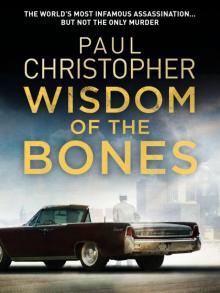 Wisdom of the Bones
Wisdom of the Bones The House of Special Purpose
The House of Special Purpose The Second Assassin
The Second Assassin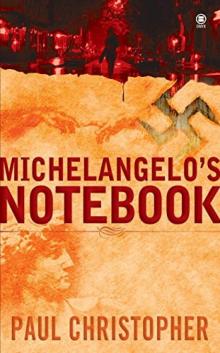 Michelangelo's Notebook
Michelangelo's Notebook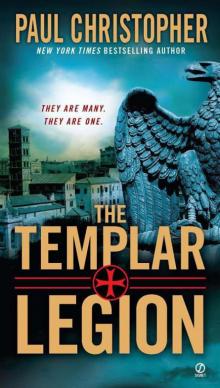 Templar Legion
Templar Legion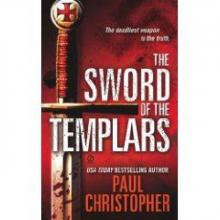 The Sword of the Templars t-1
The Sword of the Templars t-1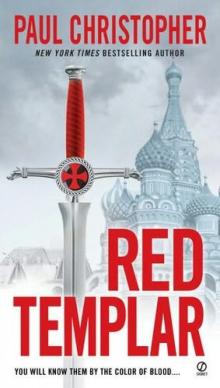 Red Templar
Red Templar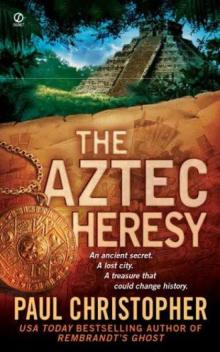 The Aztec Heresy
The Aztec Heresy The Templar Legion
The Templar Legion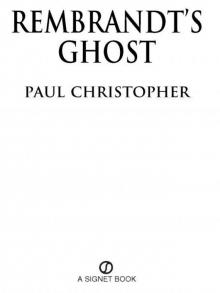 Rembrandt's Ghost
Rembrandt's Ghost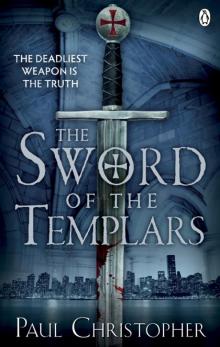 Sword of the Templars
Sword of the Templars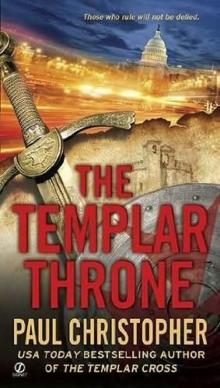 The Templar throne t-3
The Templar throne t-3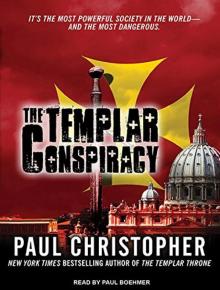 The Templar Conspiracy
The Templar Conspiracy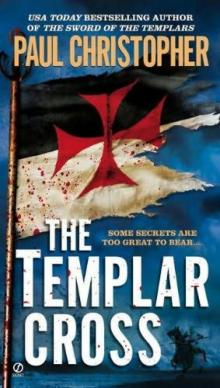 The Templar Cross t-2
The Templar Cross t-2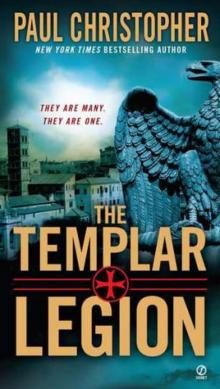 The Templar Legion t-5
The Templar Legion t-5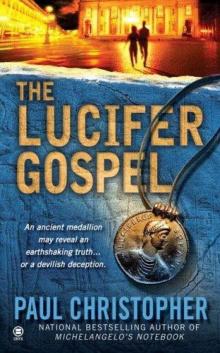 The Lucifer Gospel
The Lucifer Gospel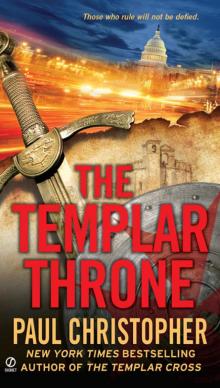 Templar Throne
Templar Throne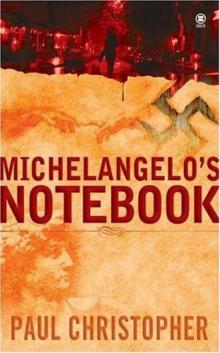 Michelangelo_s Notebook fr-1
Michelangelo_s Notebook fr-1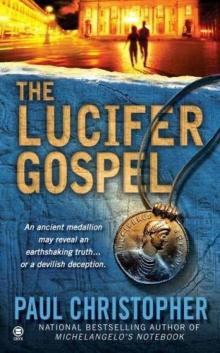 The Lucifer Gospel fr-2
The Lucifer Gospel fr-2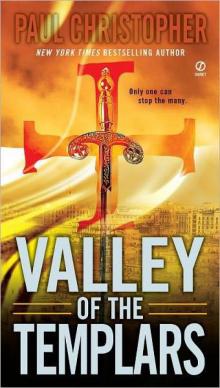 Valley of the Templars ts-7
Valley of the Templars ts-7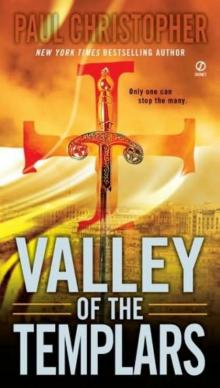 Valley of the Templars
Valley of the Templars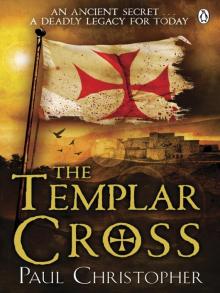 Templar Cross
Templar Cross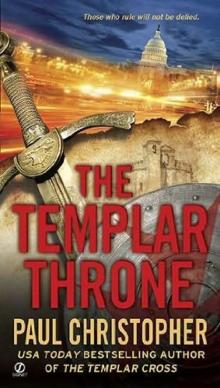 The Templar Throne
The Templar Throne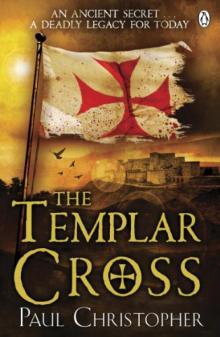 The Templar Cross
The Templar Cross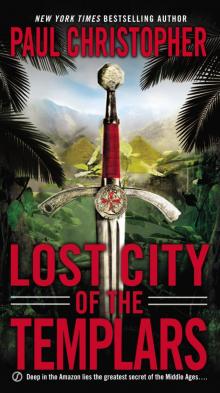 Lost City of the Templars
Lost City of the Templars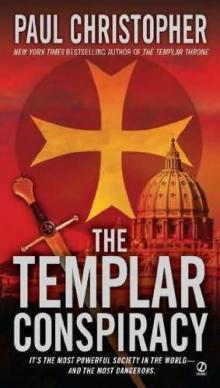 The Templar conspiracy t-4
The Templar conspiracy t-4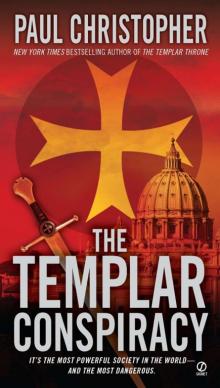 Templar Conspiracy
Templar Conspiracy